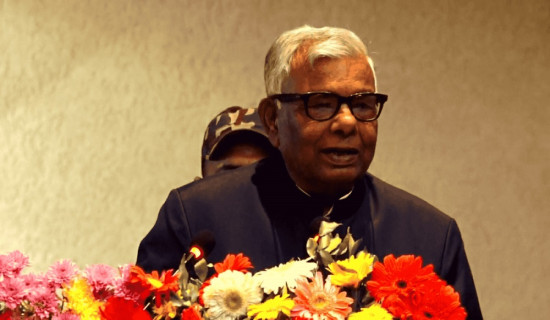- Thursday, 13 March 2025
Ordeals Of TU Students
Tribhuvan University (TU) has remained a pillar of higher education in Nepal for years. But in recent years, its examination system has been brought into the spotlight for creating unnecessary delays in the academic cycle, forcing students to live with uncertainty and even compelling many to discontinue their studies. Even with TU's historic legacy and its numerous affiliations, scheduling, publication of results, and general management inefficiencies continue negatively affecting students' academic and professional aspirations. While the university is trying to improve things, minor improvements are still not enough to root out some problems that have continued to plague students year after year.
One of the problems causing further strain on the university is its irregular examination schedule. Unlike international universities that have a fixed academic calendar, TU, which often delays exams, throws students into confusion. For example, a National Education Board study (2022) shows that exam delays at TU have delayed the students' completion of their study by at least six months. Unpredictability in the university assessment schedule limits students' chances of effective planning for further studies, competitive exams, or even job placements, making them demotivated. Adding to the ordeal are the long intervals between the exams and announcement of results, causing some students to wait over a year before the issuance of their transcripts.
The effects of these delays are not limited to mere inconvenience; they have a strong bearing on the retention of students. A report by the University Grants Commission Nepal in 2023 stated that TU has one of the highest dropout rates among South Asian universities, with examination irregularities appearing as one of the culprits. Postponed issuance of the transcripts creates troubles for the students aspiring to apply for higher education abroad, and many of them are forced to defer their admissions, while others give up their aspirations altogether. Also, errors on the mark sheets, combined with the long bureaucratic process to rectify them, seem to be among the other complaints. This inefficient practice not only seriously blemishes the name of TU but also repels prospective students from joining in and pursuing their higher studies.
To overcome these difficulties, TU should implement major reforms in its examination and administrative structure. A firm and transparent academic calendar should be in place, with full adherence to the examination schedule. Online registration for examinations, mark sheets in electronic files, and computerised processing of test results will minimise mistakes and put an end to such systematic delays. An investigation carried out by Kathmandu University in 2021 on digitisation in education reports that universities adopting these systems generally see result-processing time kept to consistent and lower amounts and satisfying the needs of students.
TU must also improve its accountability in terms of administration by bringing out the results within a certain period and holding responsible those causing any delays. Thus, as the leading academic organisation, TU must set an example by upholding academic integrity and fair dealing. If TU does not revive the examination system, its credibility will always remain in doubt, driving its students towards other affiliations and international universities. The time for reform is now before the next generation of students gets robbed of their valuable years through an inefficient system.






-original-thumb.jpg)










